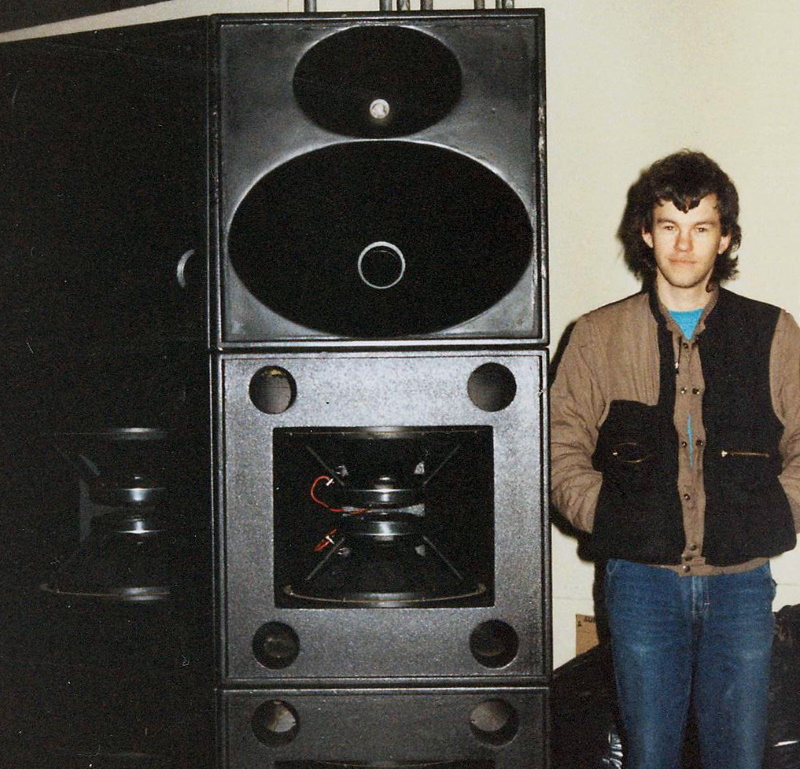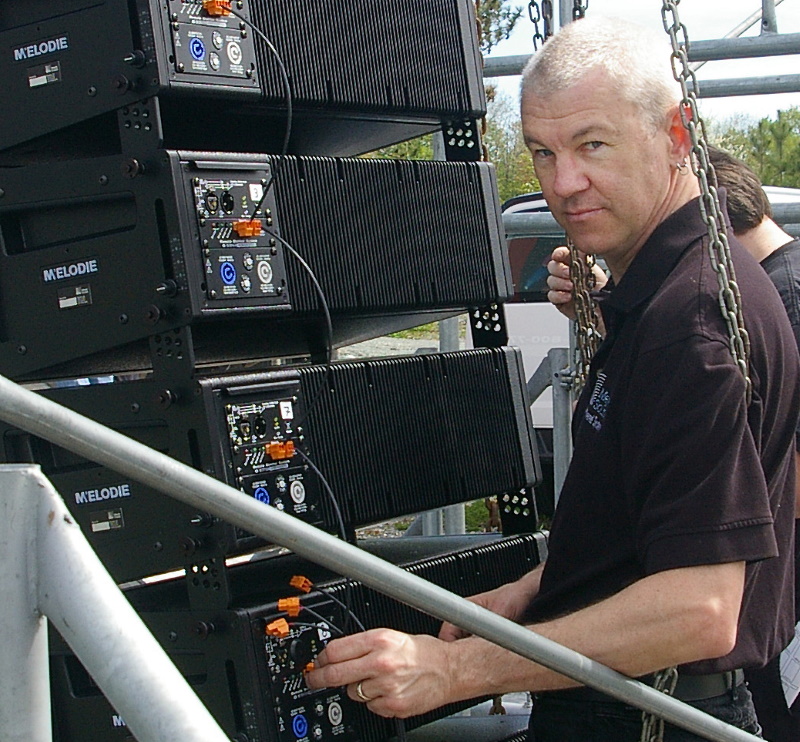
Through most of the 1990s Robertson worked for various theater productions and East Coast artists such as The Rankin Family and Natalie McMaster, predominately mixing FOH, but also serving as lead monitor engineer for The Stan Rogers Folk Festival in Canso, Canada for several years.
The festival, with multiple stages and a tight timeline, was a gig that required flying by the seat of his pants: “We only got a quick line check before bands started playing and getting the mixes dialed in right out of the gate could be challenging, but quite fun when you really nailed it.”
There was very little time for niceties, he adds, laughing, crediting his first theater gig, The Summertime Revue out of Cape Breton (which he toured with for nine years), for teaching him how to be polite. “It was ‘please’ and ‘thank you’ and ‘would’ you please…?’ Not ‘Take that’ and ‘Do this’. That was the first thing I learned.”
The mix was also relatively polite, he adds. “There’d be songs, skits and comedy. The challenge was keeping the music at a proportionate level to everything else, no more than 95 dB SPL by the end of the show, which is good because I can still hear. But the performances were so tight, so consistent, it was like mixing a record every night.”

The experience solidified his approach to mixing; one predicated on keeping things simple, controlling the situation, and, most importantly, fostering an environment where the artist is truly comfortable. “Music is the acoustic representation of emotion, and performers are at their best when they’re not thinking. If they’re uncomfortable, or worried that the technology isn’t going to hold up when they start playing, they’re not feeling it, they’re thinking about it.
“So, one of the things that I focus on is stage sound,” he continues. “Not only making it sound the way the performer needs it to, but being consistent so they can rely on me to get what they’re doing out to the audience properly, and making sure they have the easiest time possible.” It’s not unlike a record producer’s role, he notes. “It’s about facilitating an environment in which the artist can perform at their best.”
Keeping It Simple
In measuring his own success Robertson’s yardstick is the quality of the show and audience reaction, not the profile of the artist he’s mixing or the complexity of the gig. “Some of the best, most enjoyable shows I’ve mixed have been some of the simplest; with lesser known artists, in intimate settings where it’s all about performer/audience engagement and interaction.”
Unfortunately, in 1997, an injury sustained during an unscheduled wrestling match with a large-format analog console forced him to take a professional detour. “We’d loaded in for a show in Moncton, New Brunswick. I plugged everything in, turned everything on, cabled the stage, went back to FOH and found all the console’s lights on. A transformer came loose in transit and destroyed the interior of the power supply, and in the process of swapping out the consoles, I blew out my back.”
With a herniated disc, he couldn’t deal with the heavy lifting touring demanded, and as sole provider for his family and an infant daughter, he couldn’t take time off to recover. Instead he refocused and founded a web development firm with two friends: “We were interested in the web, which was new then, and created what would now be called a content management system. We were actually one of the first companies to pull content out of a database, parse it into HTML and build websites that allowed anybody, even if they didn’t know anything about coding, to provide content.”
That satisfied Robertson’s fascination with emerging technologies, but not his passion for mixing, so, three years later, with his back healed, he returned to freelancing, but ultimately took a position at Tour Tech East in 2003. “The folks there were also friends, my family was growing, and so it was time to settle down and get a day job.”
